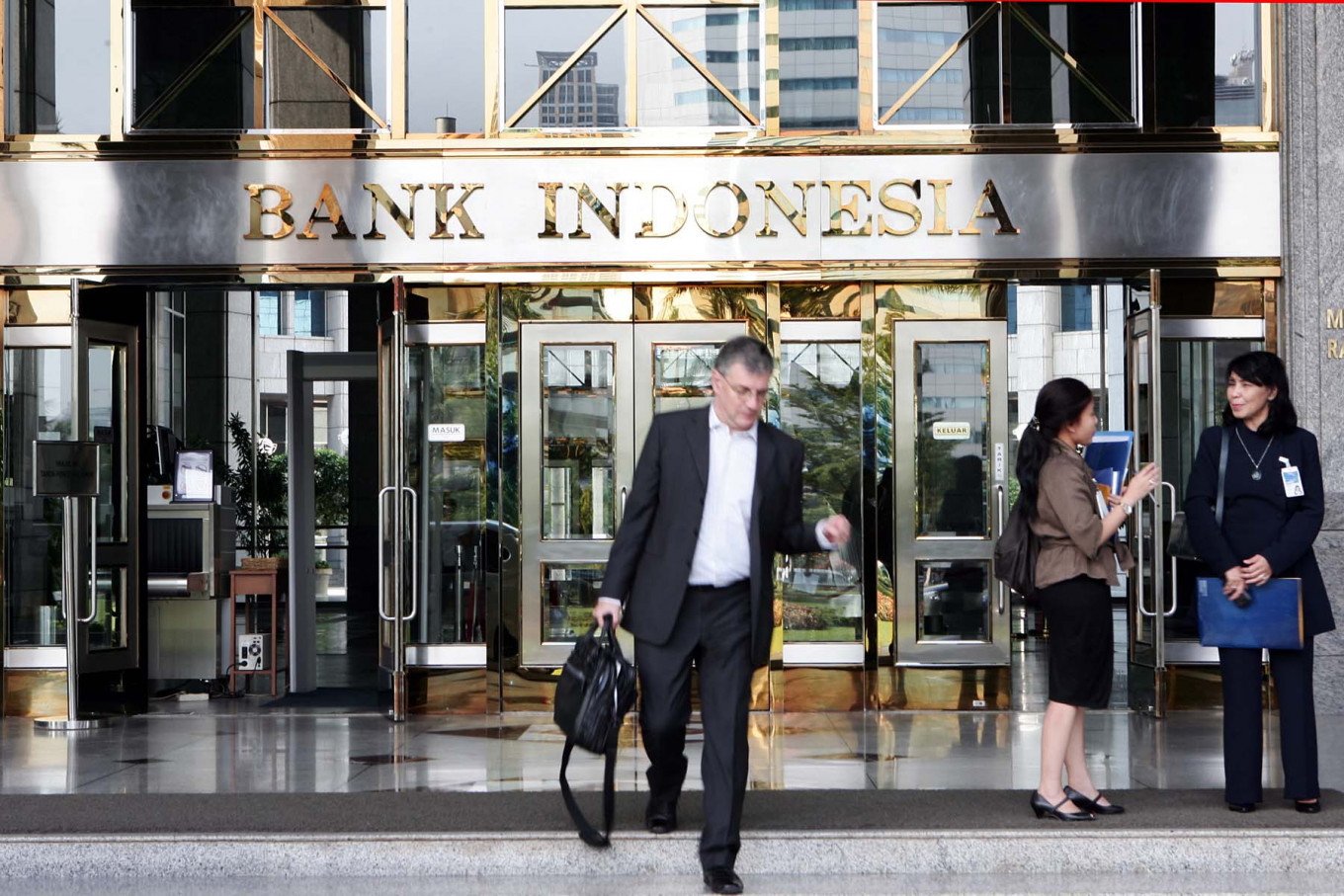Popular Reads
Top Results
Can't find what you're looking for?
View all search resultsPopular Reads
Top Results
Can't find what you're looking for?
View all search resultsBank Indonesia holds policy rate, sees room for further cuts amid virus risks
BI has trimmed the benchmark rate twice this year in response to the pandemic.
Change text size
Gift Premium Articles
to Anyone
B
ank Indonesia (BI) has decided to keep its benchmark interest rate unchanged in a move to safeguard the country’s macroeconomic and financial stability amid recessionary risks from the COVID-19 pandemic.
After a two-day Board of Governors meeting on Tuesday, the central bank maintained its policy rate – the seven-day reverse repo rate – at 4.5 percent. Lending and deposit rates were also kept at 5.25 and 3.75 percent, respectively.
“This decision has taken into account the need to maintain external stability, including the rupiah exchange rate, amid greater global uncertainty,” BI Governor Perry Warjiyo told reporters in a livestreamed briefing on Tuesday. “The central bank sees room for further interest rate cuts to boost the economy amid the low inflation rate.”
BI has trimmed the benchmark rate twice this year in response to the pandemic and six times in the current easing cycle, which began in 2019, and slashed a total of 150 bps.
The central bank now expects the economy to grow 2.3 percent this year, sharply down from a range of 5.1 percent to 5.5 percent projected earlier. Under the worst-case scenario, however, BI expects the economy to contract by 0.4 percent, similar to the government’s projection, after the country recorded 5.02 percent growth last year.
Perry said the central bank would step up its interventions to stabilize the rupiah through spot and domestic non-deliverable forward markets and government bond purchases if necessary, adding that the rupiah remained “fundamentally undervalued”. He expressed optimism that the currency could strengthen to Rp 15,000 against the US dollar by year-end.
The rupiah has been one of the worst-performing emerging Asian currencies this year as the country's bond and stock markets saw capital outflows of around Rp 171 trillion (US$10.89 billion).
The rupiah had gained around 4 percent since the end of March to Rp 15,645 per US dollar as of 3.30 p.m. Jakarta time on Tuesday. The currency started to appreciate after the government sold dollar-denominated bonds worth $4.3 billion and BI announced a $60 billion repo line with the US Federal Reserve.
The central bank has also decided to step up its quantitative easing measures to boost banks’ liquidity by lowering the rupiah reserve requirement ratio by 200 bps for conventional banks and 50 bps for sharia banks starting May 1. BI will also revoke the banks’ obligation to fulfil the Intermediary Macroprudential Ratio (RIM).
“The measures will boost banks’ liquidity by Rp 117.8 trillion,” Perry said.
BI has injected almost Rp 300 trillion of liquidity into the financial markets and banking industry to help support the country’s financial stability amid the COVID-19 pandemic.
The government, meanwhile, has rolled out a fiscal stimulus worth Rp 436.1 trillion to boost healthcare spending, social safety net programs and an economic recovery program following the outbreak.
“Policymakers have taken decisive steps through a massive fiscal stimulus, necessary relaxations and interventions in financial markets to weather the crisis,” University of Indonesia Institute for Economic and Social Research (LPEM UI) economist Teuku Riefky said, adding that the recent conditions were relatively more stable compared with a few weeks ago.
“However, policymakers should be careful in taking any next steps as any injudicious measure would stop the momentum gained and defeat the correct steps already taken,” he said. “Therefore, we feel that BI holding the policy rate is appropriate.”










